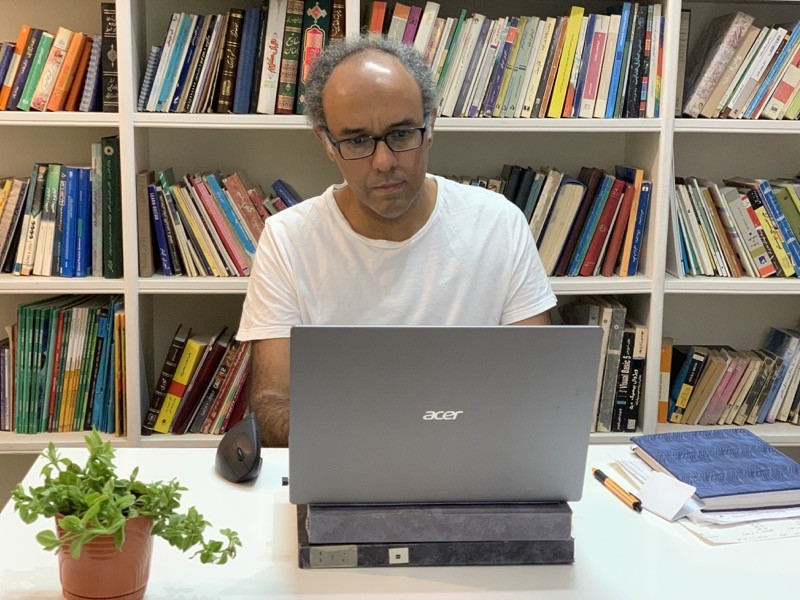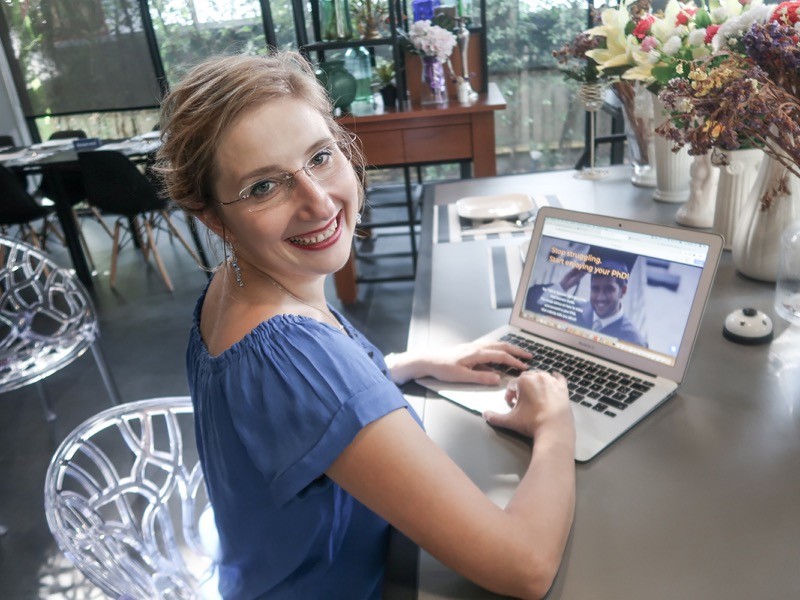Graduate students around the world need more support to manage the mental-health issues, such as depression and anxiety, that they are experiencing at worrying rates, according to a report1 from two US non-profit organizations.
The study was co-produced by the Council of Graduate Schools (CGS) in Washington DC and the Jed Foundation (JED) in New York City. Nance Roy, JED’s chief clinical officer, says that the foundation, which works to protect emotional health in teenagers and young adults, wanted to examine the rise in mental-health problems among US graduate students. There are few targeted programmes or policies to mitigate those problems, she says. “We wanted to include the graduate-student voice in our report, but not place the burden of change on them.”
CGS president Suzanne Ortega says that when the organization — which represents about 500 universities in the United States, Canada and elsewhere — realized that its member institutions were noticing mental-health struggles among students, it sought to address the problem. Those institutions “were looking for resources and guidance”, says Ortega.
The CGS–JED report identifies challenges faced by graduate students, such as poor mentorship, the inability to access counselling services and a lack of training for non-academic careers. It also urges university administrators and members of campus communities to improve mental-health support services, revise leave-of-absence policies, and provide mentorship training for faculty members.
Mental-health problems among junior researchers are not specific to the United States, and are driven, in part, by the immense pressure on academic scientists to win funding, publish and land jobs in a brutally competitive market, says Katia Levecque, a psychology and law researcher at Ghent University in Belgium. “The mindset in academia is very often one in which failure is not an option and where non-academic jobs are not an option,” she says. The pandemic has exacerbated the problem, but it existed well before that. A 2017 study2 that Levecque co-authored found that one in three PhD students is at risk of developing a mental-health disorder, especially depression.
Other studies have corroborated these findings. A 2020 mental-health survey3 of 13,000 junior researchers conducted by Cactus Communications, a scientific-communications company based in Mumbai, India, found that more than one-third (38%) of respondents often felt overwhelmed by their work situation. In a follow-up survey4 by Cactus, one anonymous PhD student in Europe said in a free-text response that being honest and open about mental-health struggles in academia is an important step towards tackling them.
Graduate students worldwide are starting to add their own voices to discussions on mental health: they are talking about their personal challenges, and saying that they can’t master them alone.
Pervasive pressures
Arildo Dias is one of many junior scientists who are struggling with anxiety in uncertain times. He received his PhD in 2013 in plant biology from the State University of Campinas in Brazil, and in 2019 started an unpaid position as a guest researcher at Goethe University Frankfurt in Germany, where his wife had secured a postdoctoral placement. He still has that post now. “It’s quite difficult to find a place where we can both stay and find paying jobs,” he says, noting that the pandemic has constrained work opportunities. “This has interfered with our personal lives because we had planned to have a family.”
The career uncertainty has caused a cascade of mental and personal struggles. “We are always thinking about the future. We don’t have security. We always have temporary contracts,” he says. “We always have the anxiety and stress that we’re not doing enough or should be doing more.”
These worries often drive early-career researchers to work long hours and prioritize their work at the expense of leisure pursuits and other aspects of their lives outside the laboratory. In a 2019 Nature survey5 of PhD students worldwide, 76% said they worked more than 40 hours per week, and nearly 40% were unsatisfied with their work–life balance.
Anindya Ganguly, a PhD student who studies mental-health issues in work environments at the Indian Institute of Management Calcutta in Kolkata, put his own health at risk by sometimes studying for 18 straight hours to prepare presentations for his two graduate courses. “For the first two years of your PhD, it’s really difficult to do anything other than studying because you know that at any moment, if you slack, you are out,” he says.
The anxiety that he felt about progressing in his PhD programme, combined with a lack of sleep, took a toll on Ganguly’s mental health. “I would call my dad and cry, ‘I cannot take this pressure any more. This is affecting my health. I’m not getting sleep.’ But at the same time, I love research. I want to be a PhD.”
In March 2020, Ganguly says, he faced extreme isolation and loneliness, a common experience of researchers worldwide during the pandemic. As COVID-19 cases rose in India, his university closed and Ganguly returned home to Haroa, where he had no Internet access. Because of travel restrictions, Internet services couldn’t be installed in his home area until June 2020. And, during the lockdown, a severe storm in Ganguly’s home region severed mobile-phone services, preventing him from reaching out to friends and family. “I wouldn’t get out of bed because I was totally shattered from within. I didn’t know what to do,” he says.
When power and phone connections were restored six days later, Ganguly contacted his supervisor, who helped him through the lockdown. “On the days I wouldn’t feel well, he would give me moral support and ask me to exercise and get some sun,” says Ganguly. “I was not very comfortable opening up to anyone, not even my adviser. But over time, I came to know that this is a person I could trust and rely on.”
Although some researchers have supportive mentors and colleagues with whom they can share their struggles, others experience further mental-health challenges owing to hostile work environments. In the 2019 Nature survey of PhD researchers worldwide, 21% of respondents said they had experienced harassment or discrimination in their programmes. Female respondents and those from minority ethnic groups were the most likely to report such behaviour. Scientists from sexual and gender minorities (LGBT+) are also more likely to experience harassment and career obstacles, according to a survey of US scientists (see Nature https://doi.org/gjqq; 2021).
Clara Giachetti earned her PhD in 2020 at the CONICET Institute of Marine Organisms Biology in Puerto Madryn, Argentina. During her time at graduate school, Giachetti worked with a group of women at her university, from all career stages, to raise awareness of the psychological violence, bias and other difficulties that women at her institution faced. The group conducted a survey asking female respondents to comment on and describe situations in which they felt unsafe at work, then printed the responses and hung them on walls throughout the institute.
Giachetti and her peers organized a safe space where women could discuss frightening experiences, launched a kindergarten and set aside a breastfeeding room for scientists with babies. “All that begins with this action of visualizing what we are suffering,” says Giachetti.
Doctoral disturbance
Although often born of an intense desire to succeed, the types of mental-health struggle and how they manifest can vary drastically among junior researchers. Fara Rigolle, a PhD student studying psychology at Ghent University, who also mentors master’s students, often finds herself comparing her progress with that of colleagues who are further along in their doctoral programme. “I don’t think others put the expectation on me that I know everything and I’m an expert, but sometimes I do it to myself,” she says.
When a colleague described the symptoms of impostor syndrome to Rigolle, she realized that she was experiencing it herself. “The problem is that you always doubt yourself,” she says. “It’s a constant fight.”
Impostor syndrome can also cause burnout among early-career researchers (see Nature 591, 489–491; 2021). At the beginning of her PhD programme in 2018, Mariana Murillo Roos questioned whether she was capable of being in the programme or belonged there. To overcome worries about falling behind and loneliness, Murillo Roos worked 12-hour days and at weekends. “Work was kind of a refuge because it was something I could control and set my mind on, rather than feeling sad,” she says. “I also wanted to feel that the sacrifice I was making was worth it.”
Murillo Roos moved from Costa Rica in 2018 to pursue a PhD at the Jena School for Microbial Communication in Germany. She doesn’t speak fluent German and it was tough adjusting to a new culture. As a visa holder, Murillo Roos also felt increased pressure to perform. “It’s truly just one shot,” she says, describing her hope that earning a PhD in Germany will make it easier for her to find opportunities in other European countries. “But you still need a visa — and it’s dependent on your progress.”
Even though she’s been encouraged to take holidays, Murillo Roos works overtime and rarely takes breaks. However, she doesn’t recommend this approach. “I’ve screwed up so many times because I’m tired or because I’m not thinking straight. It’s OK if you want to work a lot, but there’s also a risk. There’s a breaking point,” she says.
Keerti Pendyal, who was diagnosed with clinical depression in 2007, also experienced breaking points during his PhD at the Indian Institute of Management Calcutta. “I was getting divorced during the first year and it took a massive mental toll on my health,” he says, leading him to take a year of medical leave.
He returned to campus mainly because he had a room available there and nowhere else to go. “I was still in a very dark place even after I came back,” he recalls. “Sometimes I slept up to 20 hours a day.” A representative from the student body and his partner supported him through this time, often sitting by his side without pressuring him to talk. He also got a dog.
After returning to his university, Pendyal immediately asked his adviser for a recommended psychiatrist, whom he started seeing. “That was one of the best things I did,” he says. “I realized I can’t ignore my mental health and that I need to balance it along with other aspects of my life” (see ‘Managing mental health’).
Problems of access
But not all researchers seek support for their mental-health struggles, in part because of the perceived stigma and a lack of awareness of the resources that exist. “I wish that universities and colleges were much more open about the resources that are available,” says Pendyal. “Even at my institute, we had to engage with the administration for quite some time to get them to circulate a document that mentioned there is a counsellor available. Students were not aware of this fact.”
In the CGS–JED report, many PhD students described problems accessing care. Counselling centres are often closed after 5 p.m. and at weekends, limiting access for those busy with classes, teaching and research. Some students were also apprehensive about going to a counselling centre where they could potentially encounter undergraduates whom they teach or work with. Financial limitations also prevent some graduate students from seeking care, JED’s Roy says.
Institutions and scientific organizations could offer graduate students classes on self-care, say advocates. “Often, the boundaries between work and life are blurred, and that’s fine — as long as you can handle it,” says Gábor Kismihók, who chairs the Researcher Mental Health Observatory (ReMO) COST Action, an initiative of 120 researchers, based in 31 European countries, to address mental-health issues in academia. “We have to know how to take care of ourselves, but this is not something you automatically know.”
Structural causes
Some institutions have implemented individually focused programmes for graduate students, such as yoga, meditation and time-management workshops, but these initiatives address only the symptoms while overlooking the drivers of mental-health issues in academia, argues Levecque. “You have the danger of ‘mopping with the tap open’,” she says. “The individual might build up more resilience, regain motivation, and plan her or his work better, but in essence the health-damaging structural causes are not tackled.”
Individually focused programmes can also create a mindset of ‘blaming the victim’, Levecque says. Dias agrees that many mental-health problems are caused by structural problems in academia. “We think that it is an individual’s problem, but that’s just a very small part of the story,” he says. “The problems are with the culture and how the system is set up.”
If institutions and academic stakeholders ignore the structural drivers of mental-health issues among early-career researchers, they will fail to retain those people, warns Levecque. “They will lose the war of talents — it’s as simple as that,” she says. “If other jobs are better paid, have more prospects and enable work–life balance, why should you stay?”
Cactus’s 2020 mental-health survey found that scientists wanted organizations in academia and other stakeholders to foster a more inclusive environment, ensure a good work–life balance and move away from the ‘publish or perish’ culture4. “We need to normalize that it’s OK to need holidays and time off, it’s OK to retire, it’s OK to be unproductive for a while,” says Giachetti.
For instance, lab leaders can give graduate students and postdocs greater flexibility in terms of working hours and time off, say advocates. Institutions, they say, can also implement policies that allow graduate students to take leave without being financially burdened. Because graduate students are often on teaching or research stipends, their income is connected to their student status, says Roy. The CGS–JED report recommends that institutions revise graduate-leave policies by allowing students to remain partially engaged with their programmes if they are away from the institution to address their mental-health struggles.
Mentoring for junior researchers often comes up short, according to the CGS–JED report, which recommends focusing on the individual instead of on their scientific output. “This is essential because people are not machines,” says Dias. He suggests that, instead of just looking at research production, lab leaders should ask their trainees how they are feeling and what their career goals are.
“We’ve created a hyper-competitive environment without much guidance about what comes next, and without much thought about how to prepare people for a full range of careers,” says Ortega. The CGS calls for career-development programmes that help junior researchers to acquire skills in communication, leadership, conflict resolution and entrepreneurship6,7.
Institutions, say advocates, also need to enact policies that address harassment and discrimination, which can cause profound mental-health problems among academic researchers. In the Cactus follow-up survey, nearly one-quarter of respondents (23%) wanted academic organizations to implement measures to promote equality and prevent harassment, discrimination and bullying.
As awareness of the prevalence of mental-health issues and potential ways forward grows, so, too, does the desire for lasting structural change. “We keep talking about what is wrong with academia and how we must improve,” says Giachetti. “We need to put into practice all the things that we are discussing.”






More News
Is that a giant sandwich? No, it’s the biggest protoplanetary disk in the sky
Author Correction: A high-density and high-confinement tokamak plasma regime for fusion energy – Nature
Superstar porous materials get salty thanks to computer simulations